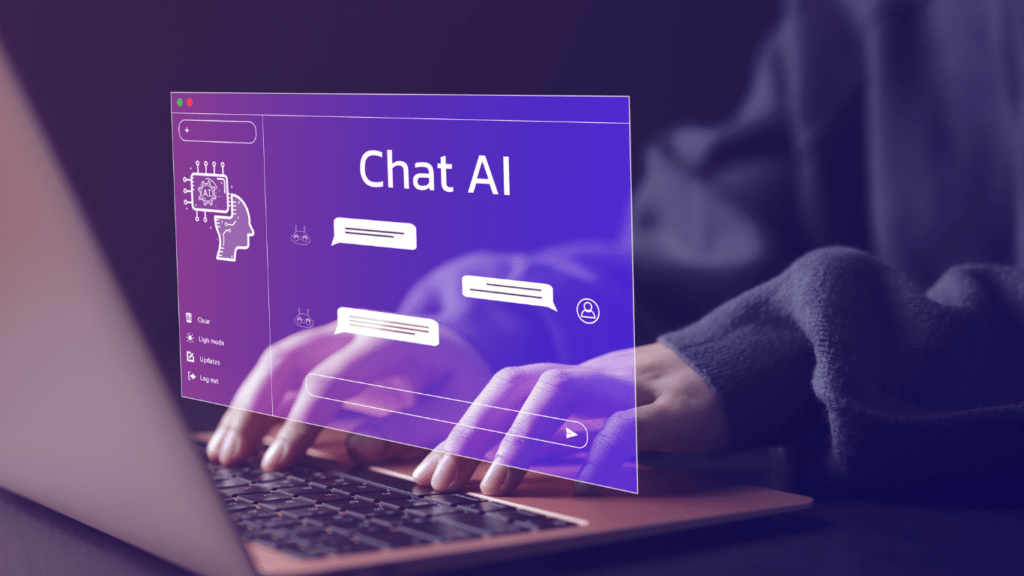Gambling has always been a game of chance, but technology is flipping the script. With artificial intelligence (AI) stepping into the scene, the industry is undergoing a transformation that’s hard to ignore. From personalized gaming experiences to smarter fraud detection, AI is reshaping how players and operators interact with the game.
The Role Of AI In Gambling
AI has become a cornerstone in reshaping how gambling operates and evolves. It bridges the gap between advanced technology and player-centric experiences, creating a smarter, safer, and more tailored gambling environment.
Understanding Artificial Intelligence In Gaming
AI involves complex algorithms and machine learning models that process vast amounts of data. In gaming, it enhances personalization by analyzing user behavior, preferences, and history to recommend relevant games or betting options. For example, AI-driven platforms can suggest slot machines or poker games based on a player’s past choices.
Predictive analytics powered by AI identifies patterns that help operators optimize game mechanics and betting odds. This ensures that games stay competitive and engaging for players. AI also improves in-game decision-making, especially in digital card games, where virtual opponents simulate human-like intelligence.
The Intersection Of AI And Gambling Technology
AI directly integrates with gambling technologies to streamline processes and elevate security. Fraud detection systems leverage AI by:
- monitoring vast transactional datasets
- identifying abnormal patterns
- preventing financial crimes
like money laundering. Casinos and online platforms use this technology to minimize risks and safeguard user funds.
AI technology transforms user experiences by powering chatbots for customer support. These bots offer real-time assistance with deposit issues, gameplay rules, or account queries, ensuring efficient service. Moreover, facial recognition, another AI application, enhances gaming security by verifying players’ identities, particularly in physical casino spaces.
Key Innovations Brought By AI
AI continues to redefine gambling by introducing cutting-edge technologies that enhance personalization, prediction, and security. These innovations improve operations while creating a seamless experience for players.
Personalized Gaming Experiences
AI tailors gaming experiences by analyzing user behaviors and preferences. Algorithms assess past activity, game choices, and betting patterns to curate recommendations. For example, online platforms suggest slot themes or poker variations aligned with users’ interests. This personalization keeps players engaged while meeting individual needs.
Enhanced Prediction And Analytics
AI-driven predictive models analyze massive datasets to refine game mechanics and offer dynamic odds. Operators use predictive analytics to anticipate player behavior, from betting tendencies to session durations. For instance, sportsbooks deploy AI to calculate live odds based on real-time events, enhancing strategic betting opportunities.
Fraud Detection And Security Enhancements
AI strengthens security by monitoring transactions and identifying unusual activity. Fraud detection systems leverage machine learning to detect anomalies like suspicious betting patterns or unauthorized account access. Casinos also implement facial recognition and biometric verification to prevent identity theft and ensure compliance with regulations.
Benefits And Challenges Of AI Implementation

AI offers transformative benefits to the gambling industry while presenting unique challenges that demand careful consideration.
Advantages For Players And Operators
- AI enhances player experiences and operational efficiency.
- Players gain personalized recommendations, dynamic betting options, and improved security. For example, AI-driven systems analyze user preferences and betting history to curate tailored game suggestions, offering a more engaging environment.
- Fraud detection algorithms bolster user confidence by identifying suspicious activity before it escalates.
- Operators benefit from predictive analytics, which optimize game mechanics, adjust odds, and improve revenue forecasts.
- By analyzing large datasets, AI enables accurate trend predictions, reducing uncertainty in decision-making.
- Automation of customer support with AI chatbots also streamlines player assistance, ensuring immediate issue resolution.
Ethical Concerns And Potential Risks
The rise of AI in gambling introduces ethical challenges and risks. Data privacy concerns emerge as operators collect detailed information about user behavior. Misuse of sensitive data or insufficient security measures can jeopardize player trust. Ethical debates also arise regarding the use of AI to encourage prolonged gambling, potentially exploiting vulnerable individuals.
AI bias in predictive models poses another risk. If algorithms inadvertently favor certain player groups, it could lead to unfair practices. Additionally, reliance on machine intelligence may reduce transparency in decision-making processes, creating accountability issues during disputes. Addressing these challenges necessitates robust regulations and safeguards to ensure ethical implementation.
The Future Of AI In The Gambling Industry
AI continues to shape the gambling industry, driving innovation and reshaping user experiences. Future advancements promise greater efficiency, personalization, and security in gambling environments.
Emerging Trends And Developments
AI-driven Virtual Reality (VR) platforms simulate immersive casino environments for players at home. Tools like natural language processing enable real-time support, improving customer satisfaction. Advanced chatbot systems handle inquiries more efficiently than traditional methods.
Dynamic game design powered by AI algorithms adapts features based on player interactions. For example, slot machines can adjust themes or difficulty levels to match user preferences. Predictive analytics further tailors live betting options, refining odds in real time.
Collaborative AI developments integrate blockchain for improved transparency in gambling transactions. Smart contracts automate payouts and verify bets, reducing operational risks. AI-enhanced biometric systems, such as facial recognition, streamline secure, frictionless identity verification.
Regulatory Implications In AI-Driven Gambling
The adoption of AI raises complex regulatory challenges. Authorities assess how machine learning models process player data to ensure compliance with privacy laws like GDPR and CCPA. Transparent data usage establishes player trust in AI systems.
Algorithmic fairness becomes critical to prevent discriminatory practices. Regulators evaluate AI-driven betting odds to avoid bias that unfairly impacts specific user groups. Regular audits of these systems maintain ethical standards.
Licensing now includes AI-specific requirements. Operators implement detailed audits for AI-based decision-making processes during license applications. Established guidelines ensure AI usage aligns with responsible gambling practices, minimizing exploitation risks.



 Mark Buxtononics is the Senior Betting Analyst at Gamble Time Hub, bringing sharp analytical skills and a deep understanding of betting markets to the forefront. Specializing in data-driven insights and predictive analysis, Mark delivers in-depth evaluations of sports betting trends, odds movements, and strategic plays. His work helps readers make smarter, more informed decisions across a variety of betting platforms. With a commitment to clarity and accuracy, Mark plays a key role in establishing Gamble Time Hub as a reliable source for expert betting knowledge.
Mark Buxtononics is the Senior Betting Analyst at Gamble Time Hub, bringing sharp analytical skills and a deep understanding of betting markets to the forefront. Specializing in data-driven insights and predictive analysis, Mark delivers in-depth evaluations of sports betting trends, odds movements, and strategic plays. His work helps readers make smarter, more informed decisions across a variety of betting platforms. With a commitment to clarity and accuracy, Mark plays a key role in establishing Gamble Time Hub as a reliable source for expert betting knowledge.

